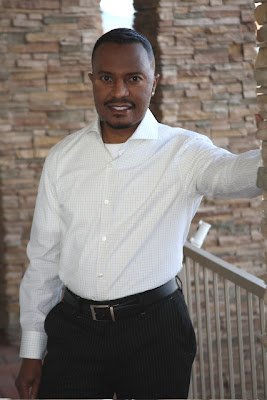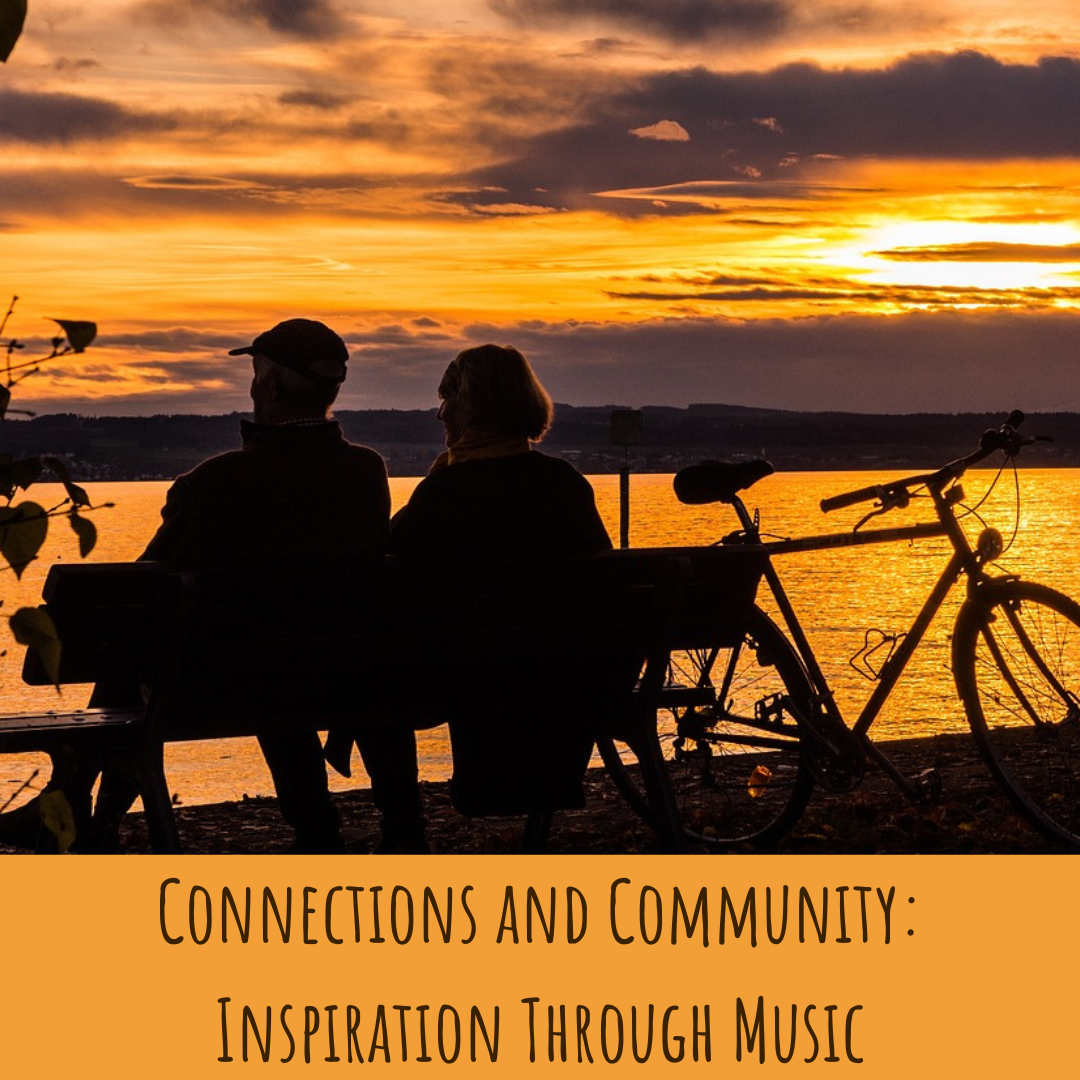Book Offers Glimpse into life of Ghana's street children
With great insight, author Kwei Quartey brings the children of Accra's streets to life in his latest book, Children of the Street. If you're like me, you haven't read a lot of fiction about or from Ghana. I'm not sure whether it was from a lack of authors that have been translated, or that the literature isn't accessible to me, but I had no idea what I was missing. Kwei Quartey, a doctor and intercultural author that delves deeply into Ghanaian culture in his books, is the real deal. Children of the Street is Dr. Quartey's second mystery, featuring Detective Darko Dawson (Wife of the Gods being his first, and on order for me), and one that I highly recommend. It's an extraordinary book.
At once a glimpse into street culture in Accra and an intensely satisfying mystery, Children of the Street follows Detective Dawson into the poverty-stricken underbelly of the city. The characters are well-rounded, and the criminal events leave you hanging on the edge of your seat. You'll probably even read all night, as I did, unable to tear yourself away.

What sets this book apart from the crowd is twofold: the honesty of writing, and the compelling characters. Quartey doesn't shy from describing what life on the street is truly like for these kids (and adults). As one who was raised in Accra, he certainly is familiar enough with the culture and city to share the gritty details with his readers - from homelessness and hopelessness to cameraderie and the ties that bind groups together. Quartey also has an unerring sense of when to drop red herrings, and when to slide in small clues. He also knows and shares the inequalities present in Accra well, from the infrastructure to politics; from human resources (especially in the police force) to human nature.
The characters ring true, and also introduce us to new worlds - that of deep poverty, scrabbling for basic human rights and betterment, the haves and have-nots, and the family struggles that Detective Dawson has with his sick child. We learn from each well-drawn character, including street kids and their difficult lives, shopkeepers, aid workers, policemen, gardeners, artists, professors. The interaction between these characters and Detective Dawson is authentic and engaging, from the language to the location. You can see him interact with people of all classes, and apply his moral compass, deep thought, and sense of rightness (which is obviously his key to success in his job as a police detective) to all situations in which he finds himself. His drive to solve these mysteries is one of the best parts of the book.
While it is lamentable to think of kids living like this today, when we have the means to end poverty, this book also brings hope - that people are decent and care, that by learning about other cultures and ways of being in the world, we can learn and know enough to make a difference.

Dr. Kwei Quartey. Photo credit Steve Monez
I thank Dr. Quartey for introducing Ghana to me in such a powerful way - while I have read other great African writers and stories of Africa (Chinua Achebe, Chimamanda Ngozi Adichie, Aminatta Forna, Nadine Gordimer, Wole Soyinka, John Coetzee, Alexander McCall Smith) - few have inspired, educated, and touched me as has Dr. Quartey's novel, Children of the Street.
We were lucky enough to sit down and chat with Dr. Quartey about his mystery, Ghana, writing, eating well in Accra, and more. Here's what he had to say...
WE: Please tell us about your latest mystery, Children of the Street...
KQ: In Accra, the capital city of Ghana in West Africa, there is a growing problem of some 70,000 out-of-school, homeless kids who live and work on the streets. It’s a tough life, a battle for survival on many levels. It’s within this environment that Inspector Darko Dawson of Ghana’s Criminal Investigations Department (CID) hunts down a killer who is taking advantage of vulnerable teenagers. Darko is a flawed detective with a loving wife and a young son with congenital heart disease. Now he digs deep into a world that has always been around him but that he has never come face to face with.
Boisterous kids in Takoradi, my favorite city
WE: What inspires your writing?
KQ: You know how children come out of a theater imitating the antics of the hero in an action movie? That happened to me too, but with books instead. All the fiction I devoured as a bookish kid growing up in Ghana made me want to create stories as good as those I was reading. Crime fiction was my favorite genre and that remains the case to this day. I can’t completely explain the incessant drive, or need, to create absorbing stories that people will read and enjoy, but writing is an indispensable part of my being.
My "official welcoming party" at Fort Metal Cross, a colonial fort along the coast
WE: You obviously know Accra (and Ghana) well - what is your background and experience there? What led you to set this mystery there?
KQ: I was born in Ghana to a black American mother and Ghanaian father, both of whom were university lecturers. I grew up at the University of Ghana till my late teens, when my mother decided to move back to the US with my brothers and me soon after the death of my father. So Ghana is really my original home, although I now call the US my present home. My Ghana ties will always remain powerful regardless of where I live.
At a point in my mostly unsuccessful writing career, I realized that the opportunity to have a detective character in a unique setting was staring at me in the face. Modern Ghana is a complex place as it develops. Its social and cultural richness makes it a fascinating milieu in which to locate a murder mystery. It took me a while to come around to it, but when I did, it worked.
Ubiquitous hawkers taking advantage of the captive traffic audience
Mobile phones everywhere, no matter your socio-economic status
WE: How can travelers truly get inside a place (like Ghana) and experience life like locals?
KQ: One way is to reach out (using caution and sense, of course) to people who are outside your traveling circle, whether it’s a tour group, friends/family, or just yourself. For instance, take an interest in the waiter who serves your table, or your driver, or perhaps the receptionist at your hotel. You will find that many of them will be happy to take you after-hours to their homes, to a local neighborhood that you don’t know about, or an area your tour group is unlikely to visit.
NGOs (non-governmental organizations) are also a good source. While I was researching CHILDREN OF THE STREET, I needed to visit an area of Accra called Nima. I asked a member of a children’s NGO if anyone could help me with that, and she put me in touch with a gentleman who was born and bred in Nima and knew every nook and cranny. I surprised him a bit by telling him I wanted to see all the “vice” spots where the worst of the worst could be found. By the way, when you engage the services of an unofficial “guide,” a decent tip for their trouble is always appreciated.
Secret alleys in Nima
Sidewalk sales are where you can get the cheapest items
WE: What is life truly like in Accra? Can readers get a glimpse of that, in this book? Is it important for authors to write honestly as well as enticing people to visit a place?
KQ: As my grandma used to say, “Never a dull moment.” Just crossing a street in Accra can be an adventure. Much like New York City, you may feel exhausted after a day in Accra. It is a high-energy place and the sensory load can be intense. Almost universally, critics and reviewers have commented that my novel is not only a mystery, but also a lifelike transportation of the reader to a locale that most Westerners will never get to visit in person. I try to be honest in my descriptions and in the creation of the atmosphere of the story. There are parts of my novel that might make the reader uncomfortable, but I don’t write to make people comfortable necessarily. Life can be beautiful, and when it is, I will show it. But life can also be cruel and I’m going to show that as well.
Two generations of school kids, the younger wondering what the older is talking about
Taking a canoe ride offshore Takoradi
WE: Why should a travel writer in Ghana consider his subjects carefully before taking a picture? What other cultural boundaries should visitors know about?
KQ: Be sensible about taking photos to avoid causing offence. There is a perception by some in Ghana, particularly the poor, that outsiders collect pictures of them and their lives to take back home as evidence that Africans are inferior and backward. If there’s someone you can ask permission to take a photo, do so. If you are with an official guide, he’ll usually inform you if it’s okay. In some circumstances, like the famous Christmas parade in Takoradi, the revelers want you to take pictures.
If you’re taking pictures from a vehicle, that’s usually fine, but do it quickly and in a way that it doesn’t appear you’re singling a particular person out. If someone has made eye contact with you at the side of the street, don’t raise your camera and take a picture of him or her. I admit that I have developed the art of what I call “stealth photography” - rapidly and unobtrusively snapping photos, sometimes from waist level. Another technique is to say you want to be in the photo with the subject. This is almost always acceptable. Kids love being snapped because you can show them the “instant replay” on the digital camera screen, usually to shrieks of delight.
Other “cultural” tips: (i) always say, good morning/afternoon/evening before starting even a business transaction. In the States, there’s no big deal about going up to a bank teller and telling him/her what you need without any preamble, but in Ghana it’s best that you greet the person first. Avoid just saying “hi,” which is not considered much of a greeting. If you get into an elevator and there’s someone else in there already, greet him or her fully.
(ii) Don’t give anything to another person with your left hand, especially a gift or a tip. Traditionally the left hand is the side you use for attending to personal hygiene issues associated with the call of nature.
(iii) One other aspect that will help you to know in advance is that for whatever reason, Ghanaians tend to minimize length and time. In the States when we give directions, we might say, “it’s quite a ways from here,” and then perhaps add the actual distance in miles. In Ghana you may get a lot of “oh, it’s not far,” or “it’s just here,” and discover that these are gross understatements. Don’t ask “how many miles is it from here?” either. It won’t help. It’s not that anyone is trying to lie to you, it’s just a different perception of time and space, and Ghanaians don’t like to give an impression that something is difficult or unachievable.
Elmina Castle, built by the invading Portuguese, 1486
With a group of street teenagers
WE: Why would Anthony Bourdain love the food NOT found in Ghana’s 5-star restaurants? Do regular people eat like this?
KQ: Like many places in the world, Ghana’s best food is not necessarily found in 5-star restaurants or hotels. To cater to foreign tastes, dishes in these establishments are often “toned down” in richness and lose some of the taste in the process, for example, palm oil dishes, which in my opinion are to die for. Visitors to West Africa are afraid of palm oil because it is a saturated fat and they have some impression that palm oil means instant clogging of the arteries (yet they’ll gobble up cheesecake or hydrogenated oil snacks without a second’s thought). Butter is saturated and has cholesterol, but you don’t see the French running away from it.
“Regular” people eat in small eateries and what are called “chop bars,” and this is where the food has a homemade quality and is most delicious. The night market at Osu is one place I can personally recommend you pick up some fabulous fire-grilled tilapia. If you’re concerned about safety, ask the preparer to cook a fresh piece in front of you so you can watch how it’s handled, and then eat it with some hot steamed rice or another steamed item called “kenkey,” which is made from corn dough.
Chop bar" - cheap food (but good)

Movenpick hotel - expensive food
WE: What is it like, living away from Ghana, but writing about it? How often do you go back and visit? Are expats welcomed or viewed as outsiders?
KQ: I must journey to Ghana once or twice a year to research each novel. All my novels have a social issue as the backdrop. My last trip in June 2011 was in preparation to write the book I’m working on now, MEN OF THE RIG, which comes after the July 2011 release, CHILDREN OF THE STREET. It’s likely I’ll need to make a quick trip again in January 2012. While there, I take every imaginable photo that I might need to refer to when I return to the US. I also develop as many as knowledgeable contacts as possible. For instance, I have a very good friend who works in Accra’s CID Homicide Division and he is invaluable in giving me details about how they conduct investigations.
In addition, it would be impossible to write my novels without the Internet, which provides me with maps, general information, and sometimes news items that fit perfectly with the scenarios in my novels.
Expats are viewed as outsiders and welcomed with great warmth. In spite of a centuries-long experience with invasion and colonization, Ghanaians have no chip on the shoulder about visitors. The society is nevertheless quite conservative and religious, and some issues like homosexuality, the “practice” of which is against the law, are not well tolerated.
Fresh coconuts - definitely a skill to open them
WE: Is there anything else you'd like to share with us?
KQ: I want to put Ghana on the map of mystery locations in the same way writers like Henning Mankell and Stieg Larsson made Sweden a place Americans now enjoy reading about as a setting for crime fiction. I think sometimes there is a fear of the unfamiliar. Don’t be afraid! Nothing to fear but fear itself. As you’ll discover when you read my novels, it’s people who make the story, and you’ll be amazed how people all over the world are remarkably similar. Inspector Darko Dawson has a seven-year-old son with congenital heart disease whom he loves dearly, and he’s desperate to find a way for his boy to have the prohibitively expensive surgery that will save his life. Is that so foreign or unfamiliar? Sounds universally human to me.
WE: Thanks so much, Dr. Quartey! We highly recommend Children of the Street to our Wandering Educators - it's a deeply satisfying mystery, and an extraordinary intercultural read.
For more information, please see:
Kwei Quartey
Random House Trade Paperbacks; Original edition (July 12, 2011)
0812981677
978-0812981674
Note: We received a review copy of Children of the Street from Dr. Quartey and Random House. Thank you!
Feature photo: Twin brother and sister, Stephan and Stephanie, at school
All photos courtesy and copyright Kwei Quarte, except where noted
-

- Log in to post comments




















Carol Voigts
I can hardly wait to read this and have several friends in mind to forward this to already as they will be eager readers too!
Carol Voigts --RETIRED!!!
Dr. Jessie Voigts
Carol - you'll LOVE it. I could not put it down - and have his first mystery, coming, to read next.
Jessie Voigts, PhD
Publisher, wanderingeducators.com
Deng Madut
Is this book available in Australia?
Dr. Jessie Voigts
head to thenile.com.au - it's listed there!
Jessie Voigts, PhD
Publisher, wanderingeducators.com